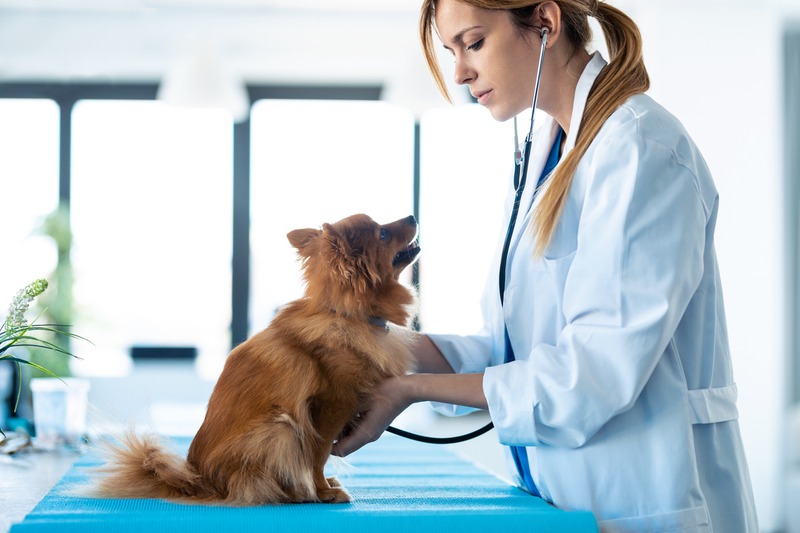
As pet owners, we naturally want what’s best for our furry, feathered, or scaly companions. Ensuring they lead happy, healthy lives means doing more than just providing food, affection, and a cozy bed. One key aspect often overlooked is the importance of preventative care and regular screenings. But why are these measures so crucial for your pets? Let’s look into this essential topic and provide you with actionable insights.
What Is Preventative Care for Pets
Preventative care refers to regular check-ups and treatments aimed at preventing illness or catching it early. This type of care differs from reactive care, where treatment is provided after symptoms appear. The goal here is to maintain wellness.
Key Components of Preventative Care
-
Regular Veterinary Visits
-
Vaccinations
-
Parasite Control
-
Nutritional Guidance
-
Dental Care
-
Ophthalmology
1. Regular Veterinary Visits
Taking your pet to the vet regularly ensures that any potential health issue can be identified and treated quickly. Veterinarians can provide valuable advice on grooming, nutrition, and exercise tailored specifically to your pet’s needs.
Why Annual Vet Visits Are a Must
Annual visits allow your vet to compare current health stats with previous records. This can help identify subtle changes that might suggest a developing problem. Early detection can lead to more effective treatment and a better prognosis for your pet.
2. Vaccinations
Vaccinations play a vital role in keeping your pets safe from several contagious and potentially fatal diseases. By getting your pet vaccinated, you not only protect them but also contribute to controlling the spread of these diseases within your community.
Common Vaccines for Pets
Consult your vet about the necessary vaccines for your pet. Common ones include:
-
Rabies
-
Distemper
-
Parvovirus
-
Leptospirosis
-
Bordetella
3. Deworming and Parasite Control
Parasites such as fleas, ticks, and worms can cause a host of health issues in pets, ranging from mild discomfort to severe illnesses. Regular deworming and parasite control measures help keep these pests in check, ensuring your pet remains healthy and happy.
Types of Parasite Control Products
Some of the most common products include:
-
Topical Medications
-
Oral Medications
-
Collars
Consult your vet to determine which type is best for your pet, as some products are more effective against certain parasites.
4. Nutritional Guidance
What your pet eats plays a crucial role in their overall health and well-being. Proper diet and nutrition can help prevent obesity, dental disease, and other health issues. Your vet can provide personalized dietary recommendations for your pet’s specific needs.
Key Nutritional Components
-
Proteins
-
Fats
-
Carbohydrates
-
Vitamins and minerals
Balance is key. Your vet can help you choose the best food options and feeding practices to ensure your pet gets the nutrients it needs without overeating.
5. Ophthalmology for Pets
When it comes to eye health, pets are just as vulnerable as humans. Regular eye exams can detect issues like cataracts, glaucoma, and infections. For more details on veterinary ophthalmology, consulting a specialist can provide you with comprehensive information and treatment options tailored to your pet’s needs.
6. Dental Care for Pets
Just like humans, pets require regular dental care to prevent oral diseases. Poor dental health can lead to painful conditions and affect your pet’s overall health.
Ways to Maintain Dental Health
-
Regular Brushing
-
Professional Cleanings
-
Dental Chews and Toys
Specialized Care for Specific Conditions
Sometimes, your pet may require specialized care for specific health conditions. Consulting with specialists, such as veterinary cardiology specialists in Newtown, CT, can provide the focused attention your pet needs for complex health issues.
Common Specialties in Veterinary Care
-
Cardiology
-
Ophthalmology
-
Dermatology
-
Orthopedics
Specialized care ensures that your pet gets the best possible treatment, which can significantly improve its quality of life.
Early Detection Through Regular Screenings
Regular screenings can catch health issues before they become serious. Early detection often means easier and more effective treatment, which can save you and your pet a lot of stress and financial strain.
-
Blood tests
-
Urinalysis
-
Fecal Exams
-
Imaging (like X-rays and ultrasounds)
Behavioral Health Screenings
Behavioral issues can significantly impact your pet’s well-being and your relationship with them. Regular behavioral health screenings can identify problems early and lead to effective behavioral modification strategies.
Common Behavioral Issues in Pets
-
Anxiety
-
Aggression
-
Destructive Behavior
-
House soiling
Sometimes, regular veterinarians will prescribe medications or supplements to support your pet’s health. Establishments like a pet pharmacy in Newtown, CT, can help you get these essential medicines promptly and efficiently.
Pharmacies often provide a range of services, including compounded medication, which tailors the dosage to suit your pet’s specific needs.
Final Thoughts
Preventative care and regular screenings are essential for ensuring that your pets lead long, healthy, and happy lives. By staying proactive, you catch health issues early, provide targeted care, and ensure that your furry friends are always in the best possible health. So, let’s make those vet appointments and give our pets the care they truly deserve.
